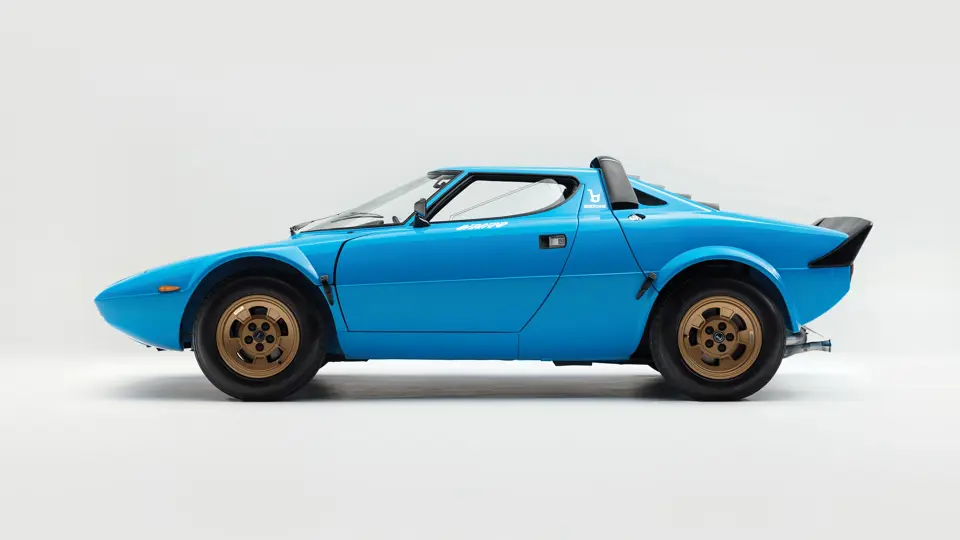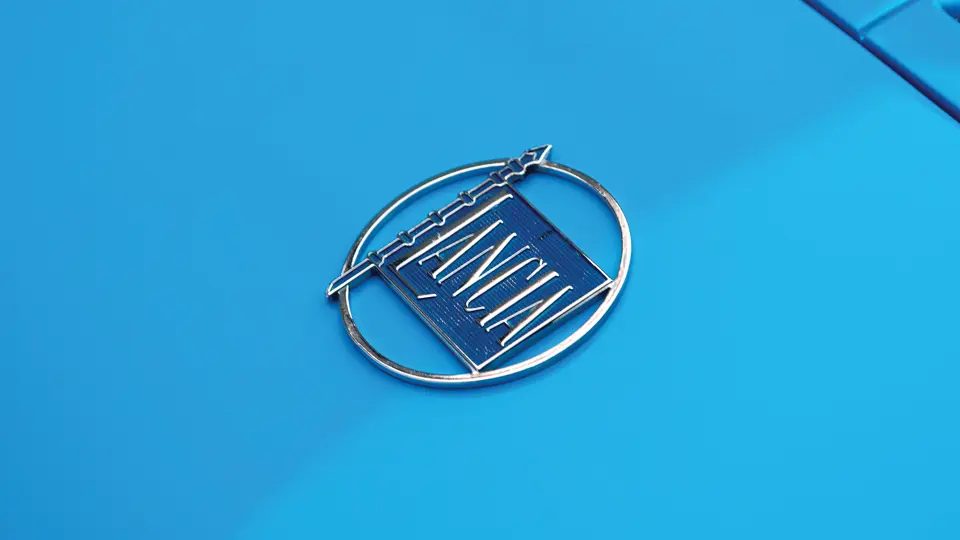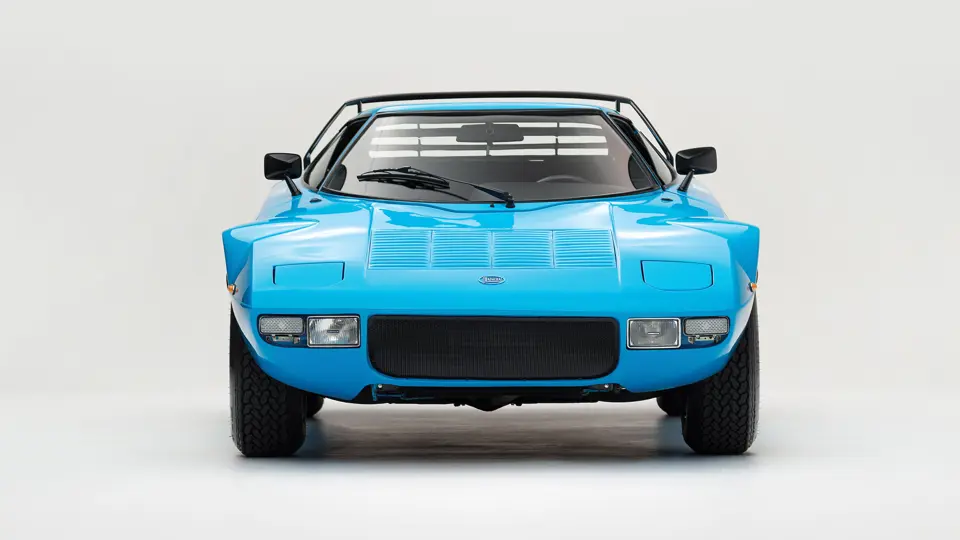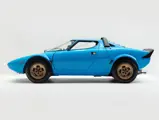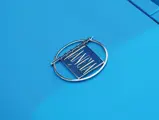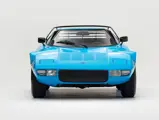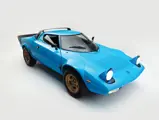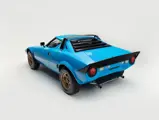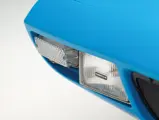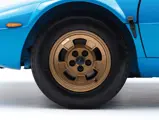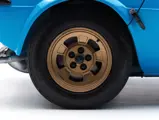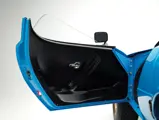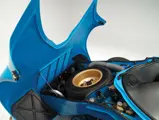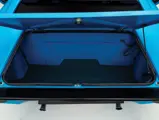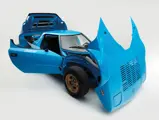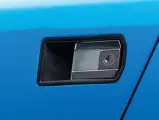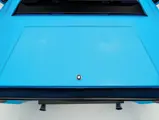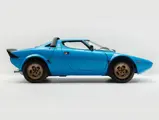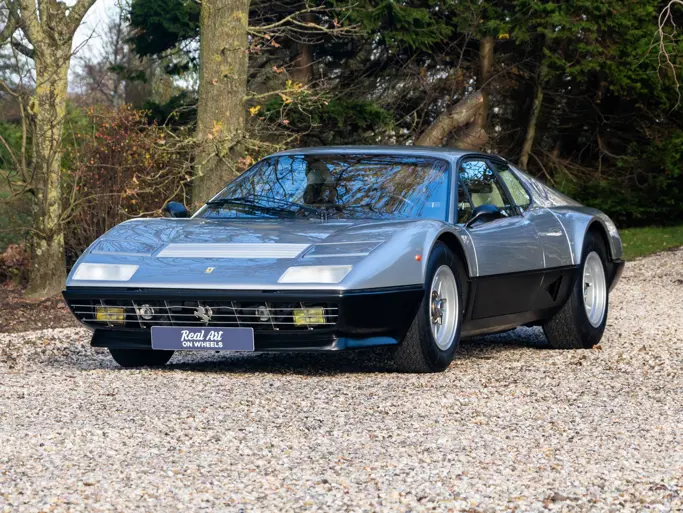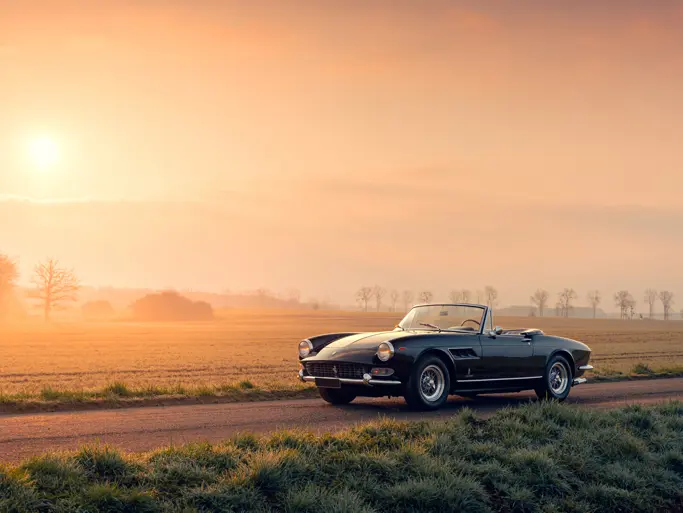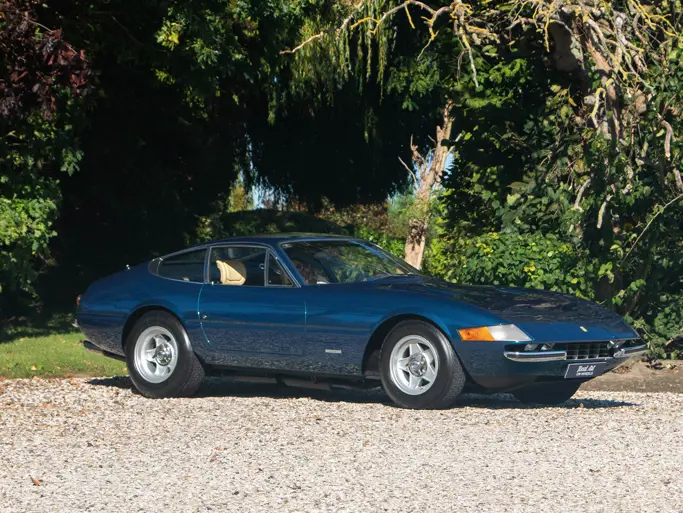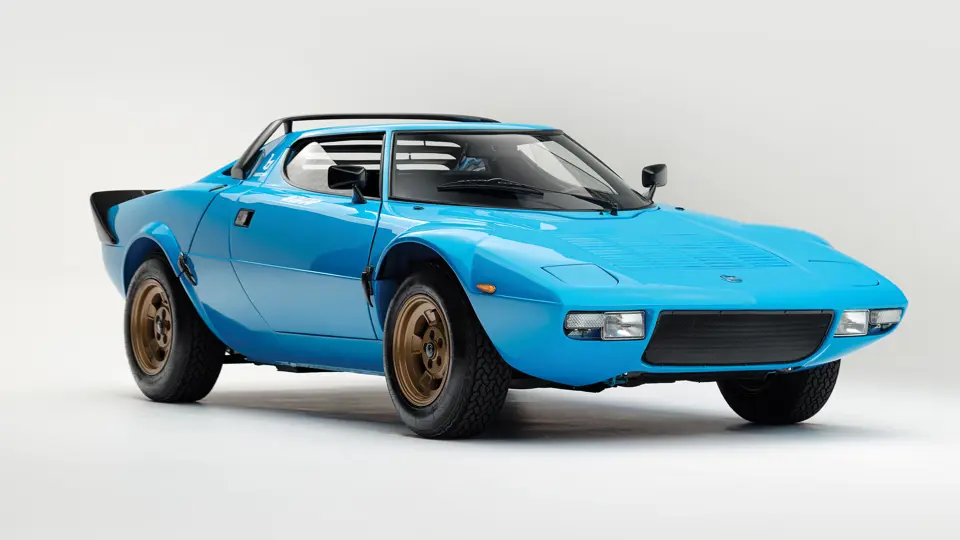
1975 Lancia Stratos HF Stradale by Bertone
{{lr.item.text}}
$500,000 - $600,000 USD | Not Sold
{{bidding.lot.reserveStatusFormatted}}
- Radical, advanced design by Marcello Gandini
- Rare production Stradale version; one of just 492 examples built
- Known ownership history per Auto Club d’Italia registrations and Estratto Cronologico
- Matching-numbers example retaining the original chassis, engine, and body
- Comprehensive two-year restoration completed in 2017
- Ideal for event display or entry in vintage rallying events
The Lancia Stratos is undoubtedly one of the most successful rally cars ever devised. In 1970 the Italian carrozzeria Bertone arrived at the Turin Motor Show with a radical concept called the Stratos Zero. Resembling a futuristic spaceship, the Zero stood out not only to throngs of media and show-goers, but also to Lancia PR director Sandro Fiorio. Fiorio and his son Cesare, Lancia’s rally team chief, considered how a production version of this radical design could be introduced. Their goal was to invigorate the manufacturer’s relatively staid image and its struggling motorsports division.
With a sense of purpose, the Fiorios approached Lancia managing director Ugo Gobbato to propose a Bertone-bodied car based on the Stratos Zero concept. Gobbato, a former Ferrari chief, approved the project on the condition that it would be powered by a mid-mounted Ferrari V-6 engine and a five-speed manual gearbox, suggesting a clever use of parts sharing that would keep down the development costs.
The following year, the orange Stratos HF (High Fidelity) prototype debuted at the 1971 Turin Auto Show. The Stratos’s stunning design was again entrusted to Marcello Gandini, and in a nod to the car’s competition mandate, it featured a large wraparound front windshield providing enormous outward visibility. The Stratos is now considered to be the first automobile ever purposely built for the World Rally Championship.
In 1972 the Lancia team began campaigning the Stratos as a prototype, but success was not instantaneous. Eventually earning its first win in 1973, by 1974 the model was on its way to supremacy in Group 4 rallying. Entry into that year’s World Rally Championship required a homologation of 500 road-legal units, and production commenced in 1973. Only 492 examples were ever completed, however, as the Group 4 production requirement was soon lowered to 400 units.
The Stratos was phenomenally successful on the world’s rally stages, securing three WRC Manufacturers’ Championships from 1974 to 1976 and thereby cementing its legendary status. After its factory campaign was over, the model continued to be successful in the hands of privateers, helping Sandro Munari to the WRC Drivers’ Championship in 1977 and even winning the Monte Carlo Rally in 1979.
Benefitting from a recent restoration to concours standards, chassis no. 001976 is one of the most finely presented examples to be offered in some time. The Lancia was initially registered in Italy in October 1975 under the ownership of its first caretaker, Paolo Neri of Livorno, Italy. A year later the Stratos was sold to its second owner, fellow Livorno resident Romano Cionini Visani, and he kept the car for seven years before briefly relinquishing it in early 1983 only to buy it back in December. Visani ultimately retained possession for a further 11 years, selling it to Giuseppe Di Benedetto in 1994.
After a 20-year ownership, Di Benedetto sold the Lancia in October 2015 to the consignor. Though the Stratos was complete and fully usable upon purchase, it was in need of freshening, so the car was immediately delivered to Richard Grenon of Driving the Best (Au-Temps-Tics-Auto) in Montreal, Canada. It was then treated to a cosmetic refurbishment including a quality refinish in blue and re-appointment of the interior, and invoices on file demonstrate this work cost in excess of $60,000.
Following the cosmetic work, the Stradale was entrusted in 2017 to Phil Bagley of Klub Sport Racing in Riviera Beach, Florida, and he conducted a full mechanical refurbishment, addressing the engine, brakes, and suspension. Mr. Bagley has continued to regularly tend the car as needed, including maintenance as recently as 2019. Though the Stratos remains largely original and period-correct (of all major components, only the windshield was replaced), several steps were taken to improve use for touring events, such as installing electronic ignition and dual side mirrors.
The Lancia has accrued very little mileage since 2015, and the odometer currently displays a modest 29,800 kilometers (18,517 miles). Retaining its original matching-numbers engine and coachwork, this beautifully presented Stratos is documented with Auto Club d’Italia registrations illustrating a 40-year chain of Italian ownership, as well as restoration and service invoices. It would make a stunning addition to any sporting rally collection, offering a perfect arrangement of drivability and presentation, just as a Stratos should.




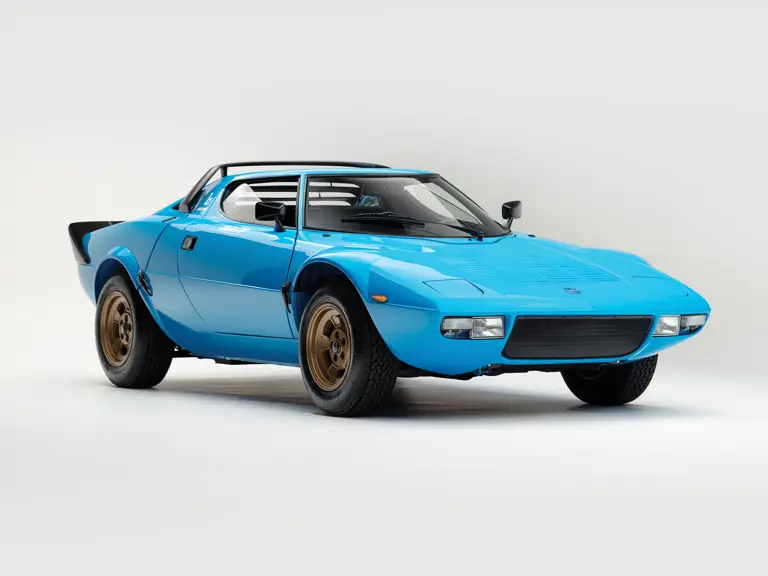
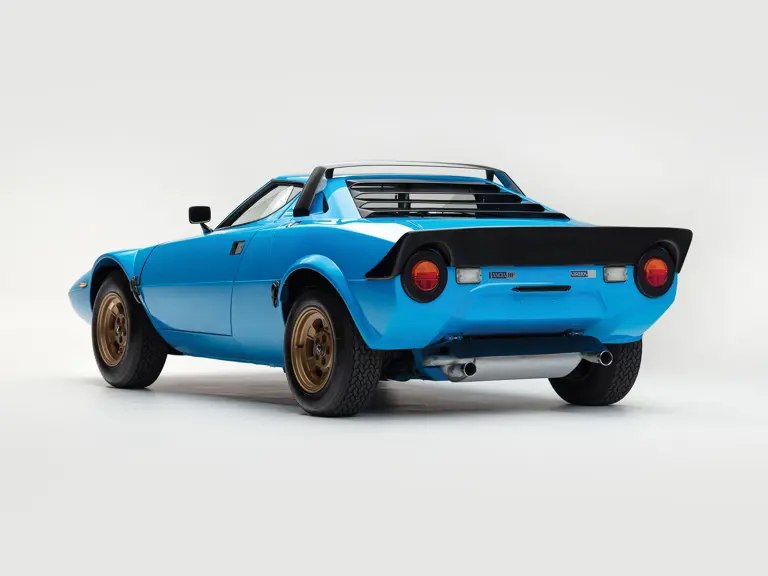
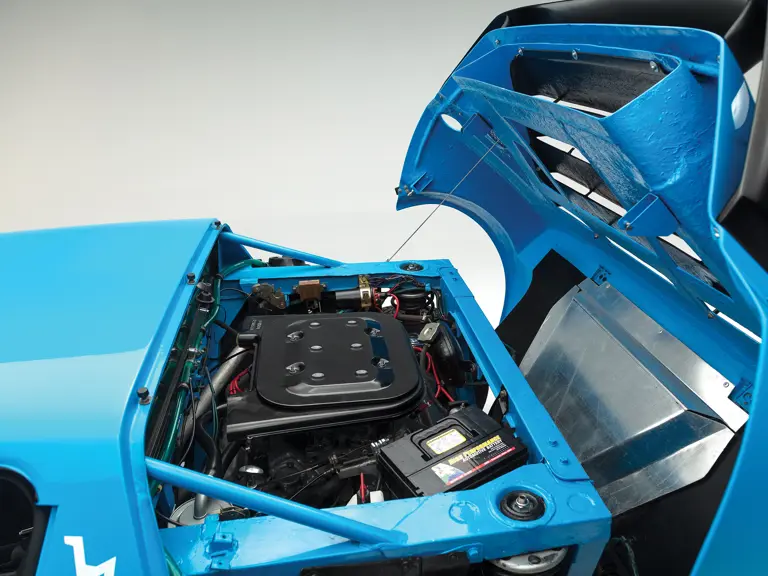
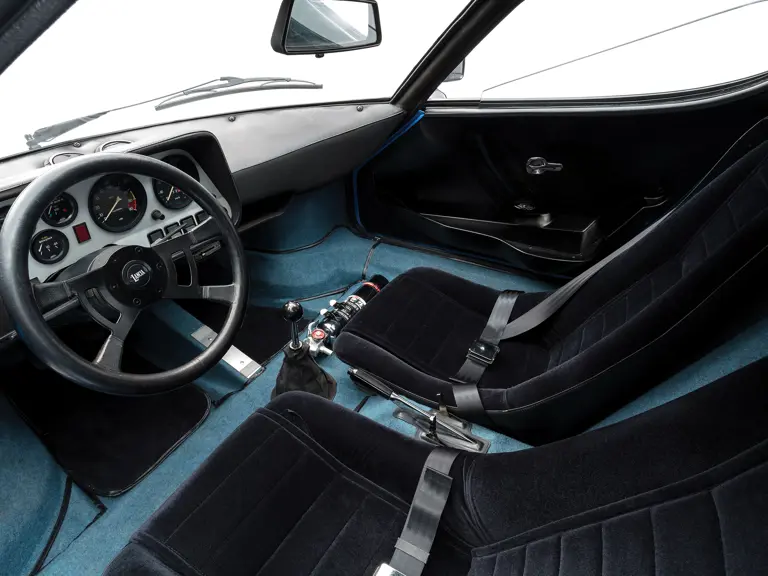
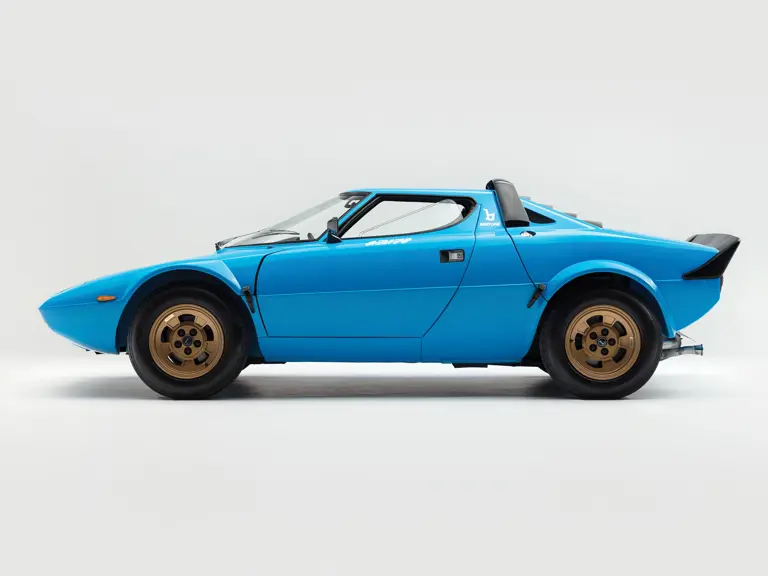
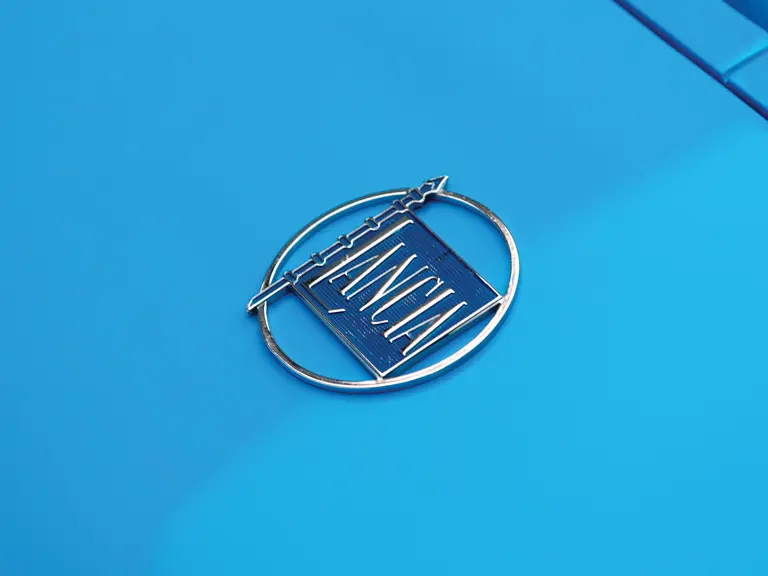
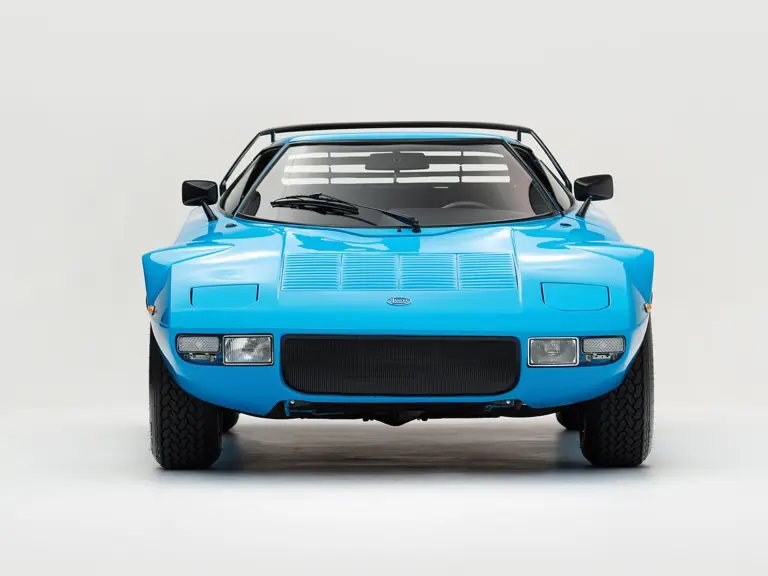
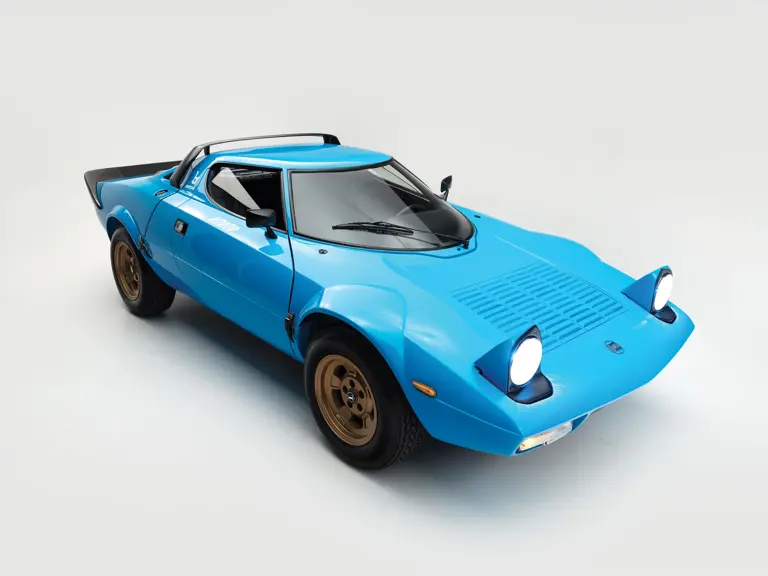
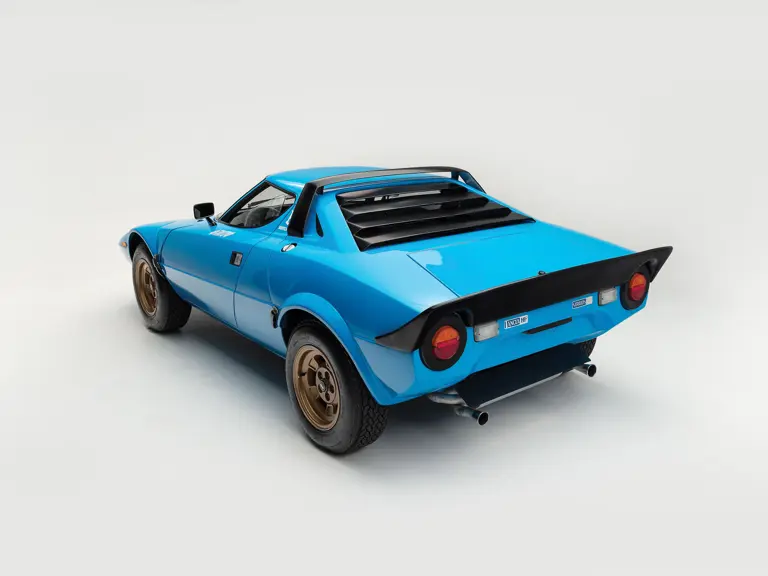
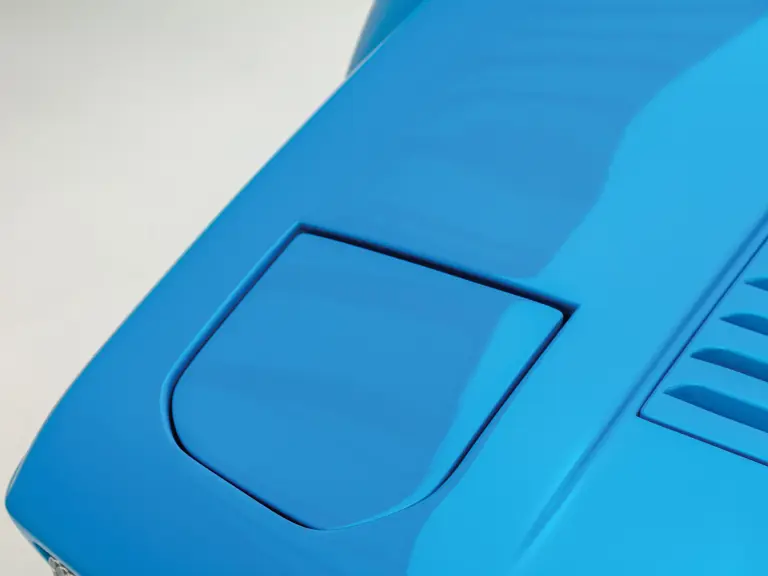
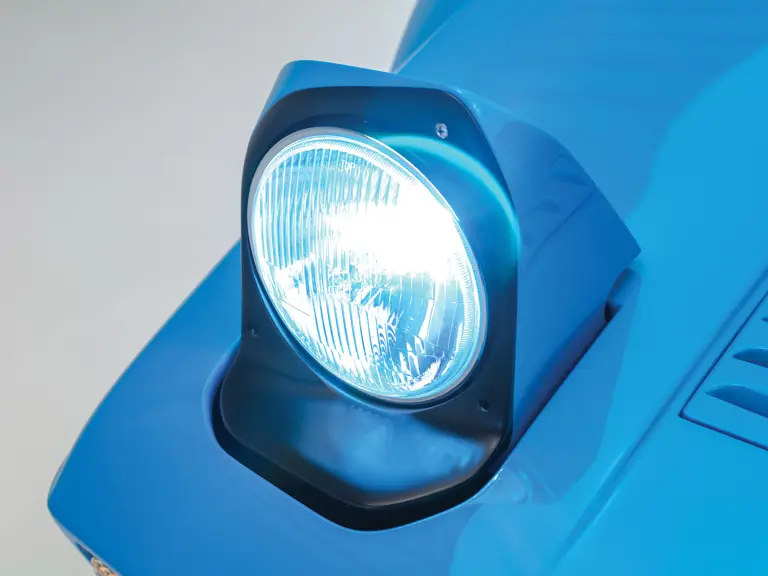
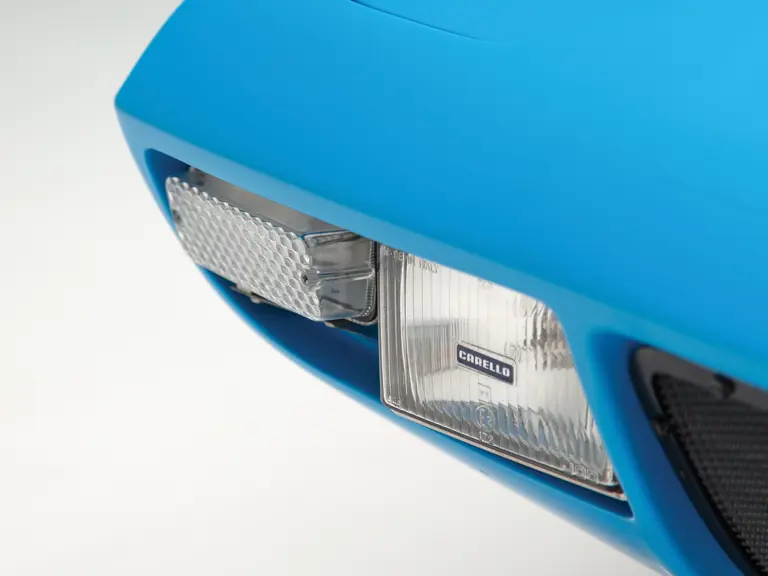
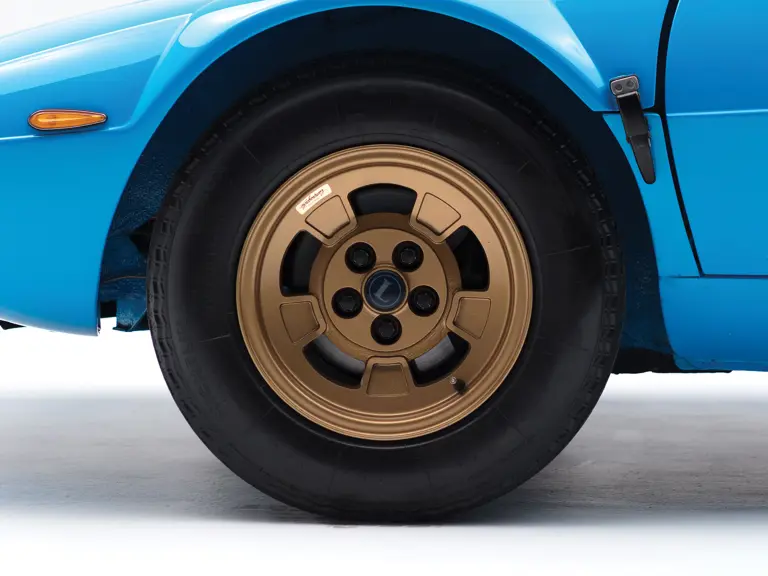
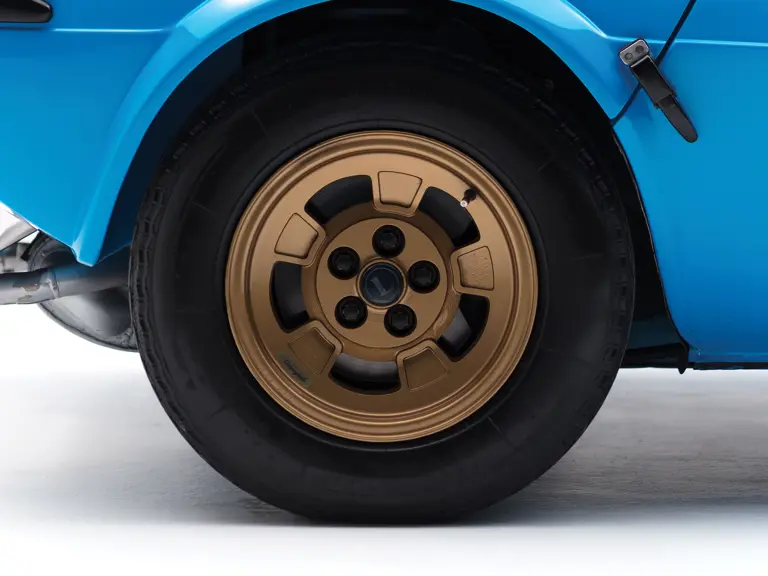
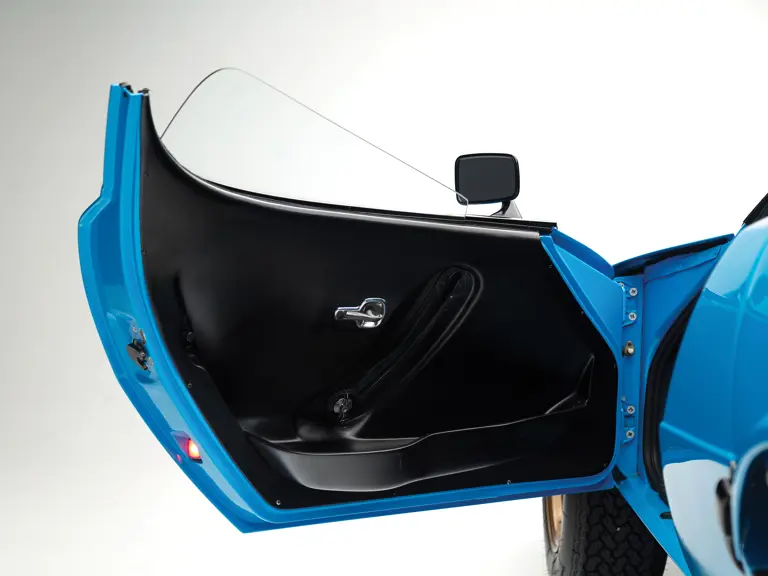
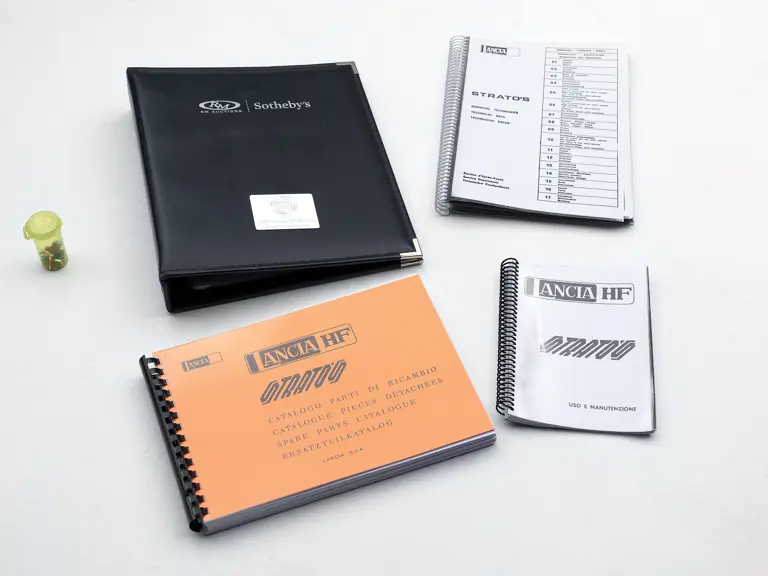
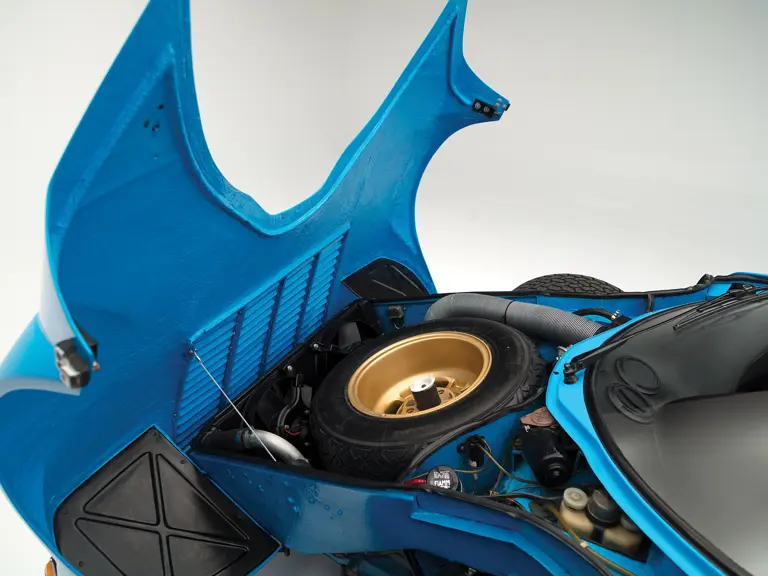
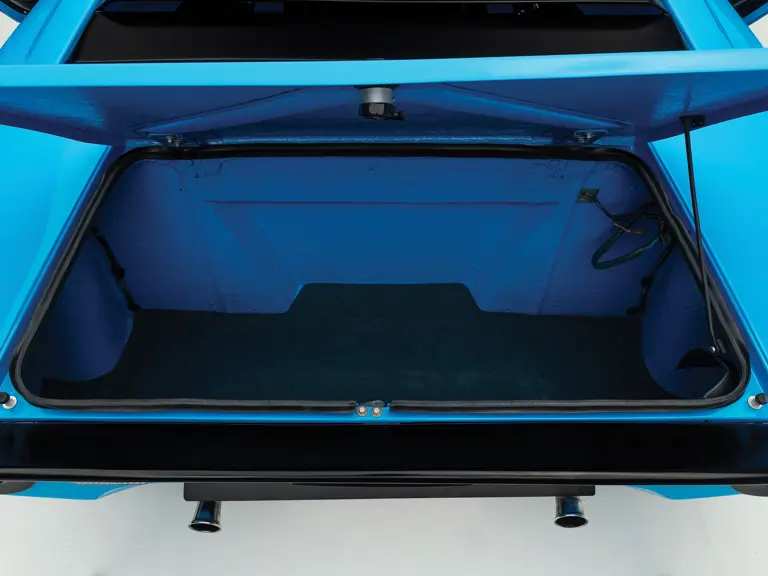
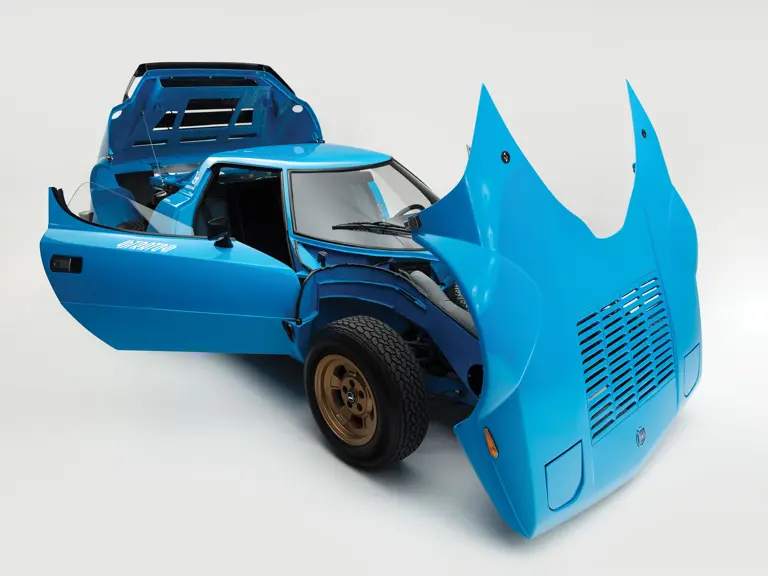
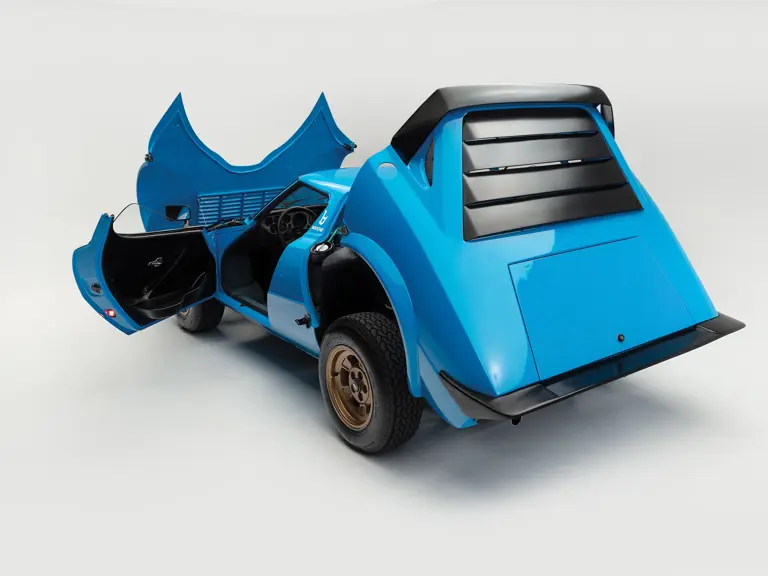
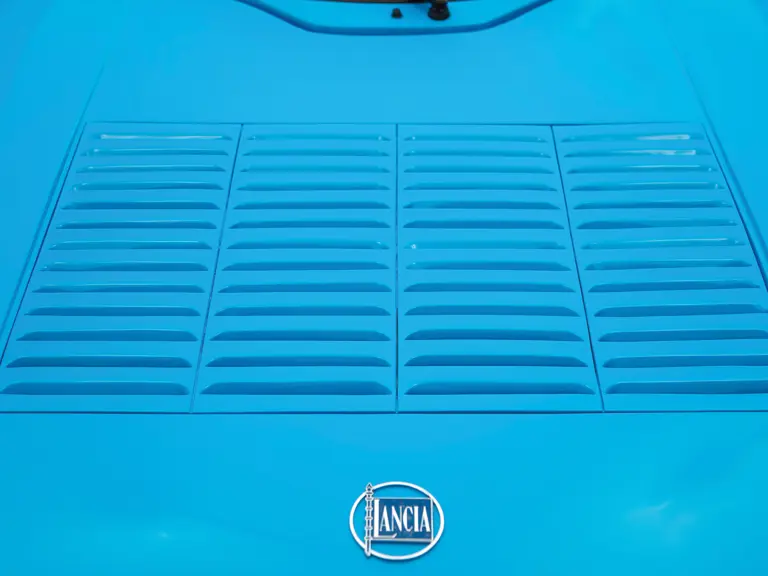
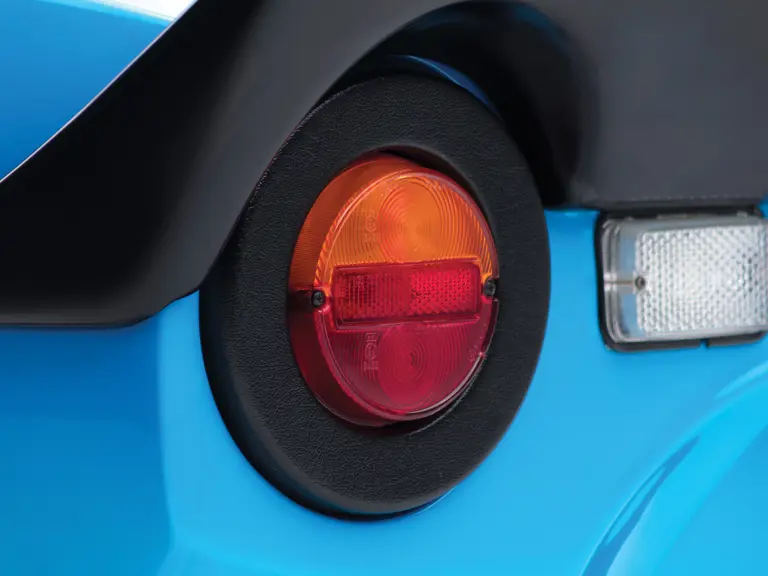
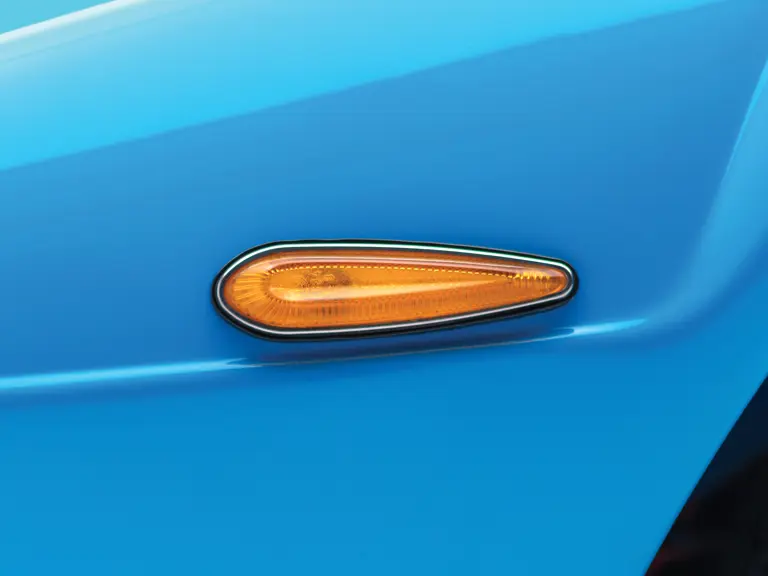
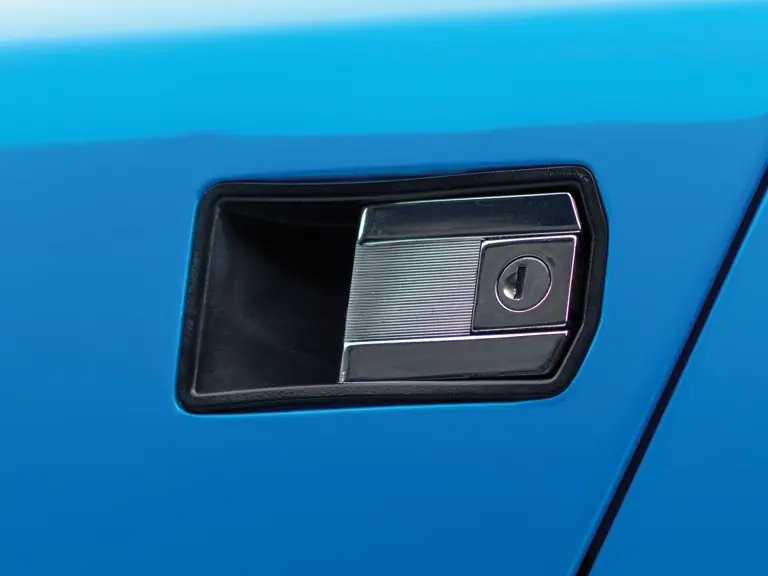
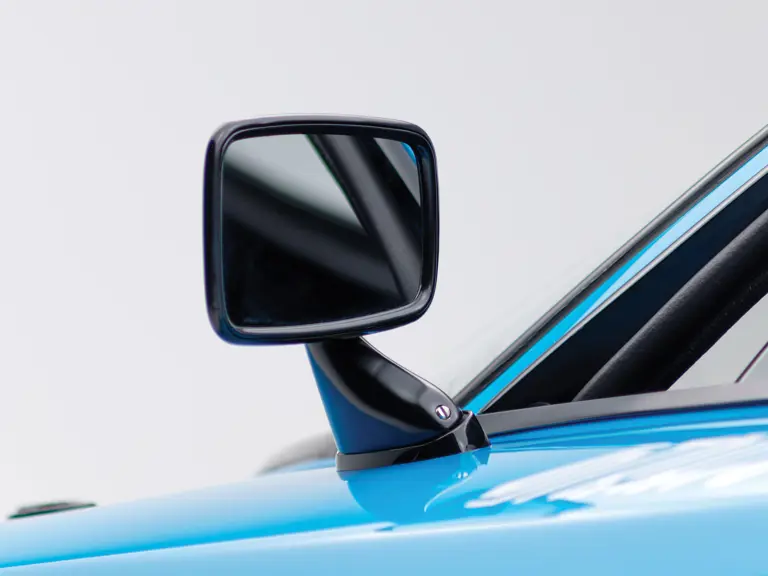
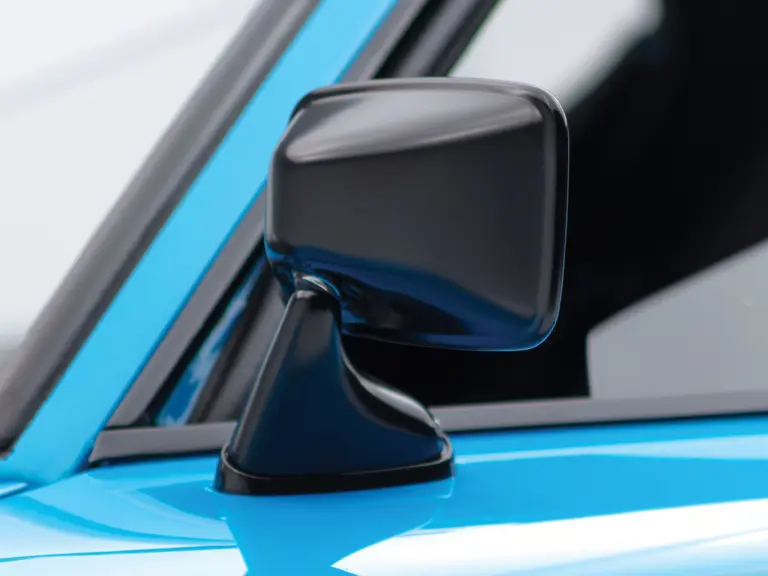
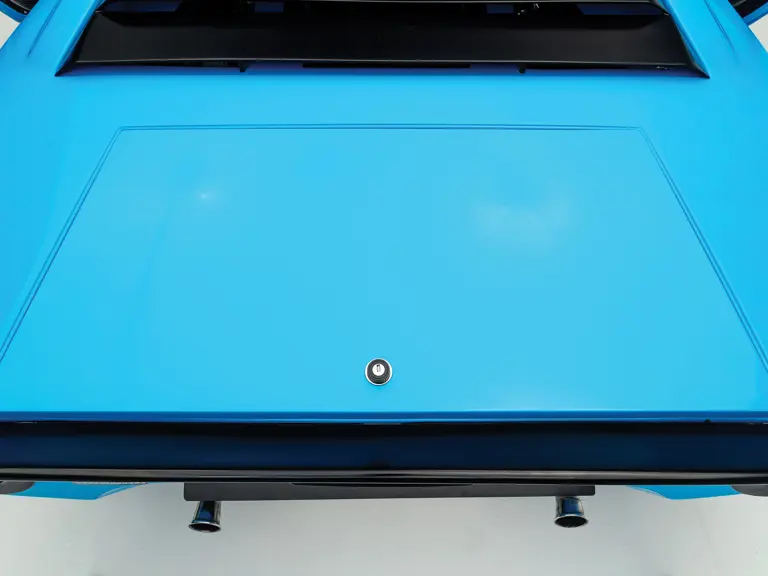
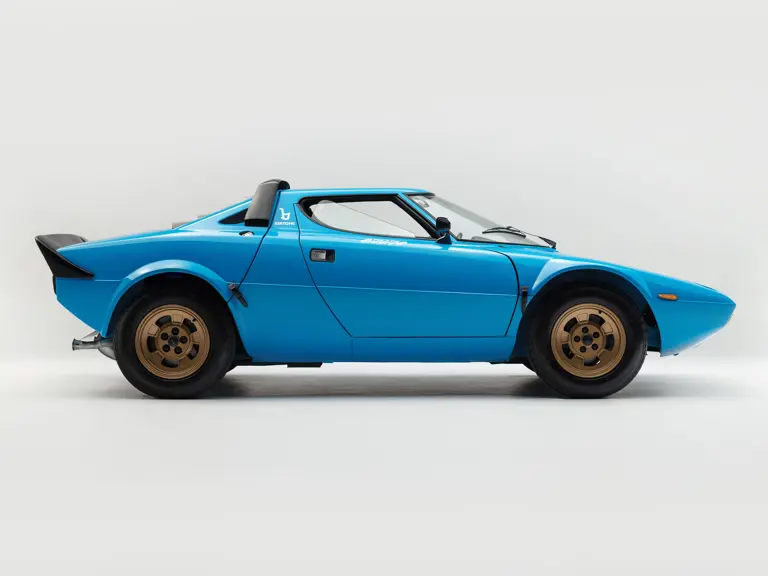
 | Amelia Island, Florida
| Amelia Island, Florida
